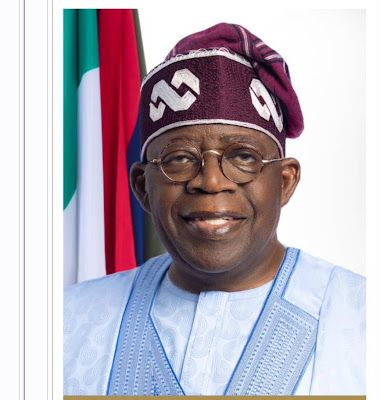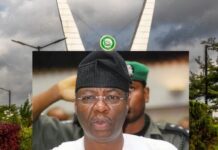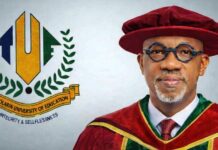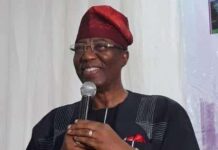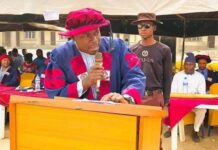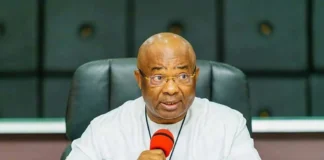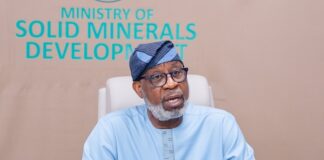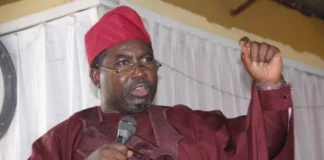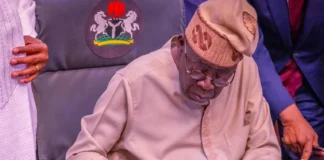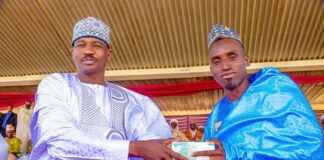It’s now one month that Asíwájú Bola Tinubu has mounted the saddle as the President of the Federal Republic of Nigeria.
One month in office may be considered too short a period of time for any objective assessment of the impact of the decisions and policy options of a government on the nation and the people, but the period can at least give an idea of where the government is headed, as they say that the morning is a pointer to what the day may look like.
The one-month of the Bola Tinubu administration in office has been marked by pragmatic solutions and ideas, decisive decisions and breath-taking actions at a fast pace such that some have nicknamed the President “Baba Go-fast”.
The media has been awash with reports of all the remarkable decisions taken by the government, notably the removal of the humongous fuel subsidy through which some greedy oil merchants were cashing out at the expense of the poor the subsidy was meant to help, the unification of the multiple exchange rates where arbitrage walked on all fours and the signing into laws of landmark bills like the new electricity and Student Loans legislation.
With the new electricity law, states, companies and individuals can now generate, transmit and distribute electricity, meaning this important power has been devolved down the ladder. Under the Student Loans law, indigent students will no longer drop out of universities on account of inability to pay school fees.
They will now be offered loans to pay their fees and repay the government later.
During the period also, the President granted audience to important dignitaries like former military Head of State, General Abdulsalam Abubakar, state governors (he even inaugurated the National Economic Council headed by Vice President Kashim Shettima), humanists and philanthropists like Mr. Bill Gates and Alhaji Aliko Dangote who came to discuss issues around polio and malaria eradication, among others.
On the global stage, President Tinubu has also represented the country remarkably well. In his first official trip outside the country after assuming office, he attended the New Global Financing Pact Summit in Paris, France, where he announced to the whole world that Nigeria is back and ready for business. His administration will ease the structures and processes of doing business and ensure investors can repatriate their profits home anytime they want to. The President sounded a note of warning to unscrupulous civil servants and business people and other wayward Nigerians that it would no longer be business as usual in Nigeria.
On the sidelines of the summit, he met with Afreximbank President B. O. Oramah and AfDB President Akinwunmi Adesina among others during which he extracted commitments from them about using facilities in their institutions to aid Nigeria’s economic development.
I have taken time to chronicle some of the giant strides recorded within just a month by the Bola Tinubu administration in order to underscore the significance of these initiatives and point out that these evidently important decisions and actions did not come about by accident or by chance. No, they were properly planned and designed. Though some were part of the promises the President made to Nigerians during the electioneering and enunciated in his manifesto christened “Agenda for a Renewed Hope for Nigerians,” I dare say that these actions were born of courage, conviction, clear vision and empathy on the part of Mr. President.
The audacious courage and clear vision behind the solutions the President has offered in just four weeks and other remarkable decisions wherein he demonstrated good leadership remain largely clearly unstated by the media and it’s the focus of this piece.
For instance, only a bold and courageous leader with eyes on the country’s progress and economic development would frontally confront and remove the subsidy monster, which had sounded the death-knell of at least one president and defied the seemingly tough posture of another. Tinubu made the removal of the subsidy a campaign promise, telling the people that if elected, he would yank it off and free the money for the development of necessary infrastructure for the people. Many political aspirants in our climes would never toy with subsidy, talk less promise it’s removal before the election for fear that it may work against them at the poll. On assumption of office on May 29, the President removed the subsidy albatross on the nation’s economic neck, which gulped a whooping N3.36 trillion in the first half of this year.
The government is now moving speedily to put in place compensatory palliatives to cushion the biting effects of the subsidy removal on the masses. Some people reckon that the President should move a step further by going after the unpatriotic oil merchants and cabals who had turned the subsidy funds into their personal ATM. It is noteworthy that despite the inevitable and undeniable hardships the inescapable imperative of fuel subsidy removal has exposed the vast majority of Nigerians to, the people have obviously decided to exercise faith in the Tinubu administration and to give it the benefit of the doubt that its policies will ultimately turn out to manifest in the greatest good for the greatest number of the people.
Indeed, appraising the policy options and initiatives of President Tinubu in just one month, @Reuters (Reuters news agency) said in a tweet during the week: “New Nigerian President Bola Tinubu has moved at lightning speed in his first one month in office implementing a raft of radical changes aimed at finally unleashing the full potentials of Africa’s sluggish economic giant.”
There are, however, other aspects where Mr. President has demonstrated good leadership. One is in the appointment of the new service chiefs. When the appointments were announced, some unashamed ethnic jingoists, uninformed analysts and commentators had gone to town, particularly on social media, saying the South-east was left with no representation, implying this might be because the Igbo largely went with their kinsman, Mr. Peter Obi of Labour Party, during the election. But President Tinubu who knew he had done justice to all would not flinch. The new Chief of Naval Staff, Rear Admiral Emmanuel Ikechukwu Ogalla, hails from Enugu State, though some of his kinsmen now want to deny him his claim to genuine Igbo ancestry in the name of politics, claiming he is from the northernmost part of Igboland.
No less important in this regard is the appointment of the new Chief of Army Staff (COAS), Major-General Christopher Musa, a Christian from Southern Kaduna. News of his elevation reportedly elicited keen excitement and applause especially in Christian circles which, before the presidential election, had been misled into perceiving the APC’s Muslim-Muslim ticket as signaling an imagined ‘Islamization’ agenda should the Tinubu/Shettima ticket emerge victorious. And the appointment of the Acting Inspector General of Police, Mr. Kayode Egbetokun, from the South-West, the Chief of Air Staff, Air Vice -Martial H.B. Abubakar, from the North-West, the Chief of Army Staff, Major-General Taoreed Lagbaja, from the South-West and the Chief of Defense Intelligence, Major-General E.P.A Undiandeye, from the South-South, the long expressed grievances at the perceived lack of balance in the composition of the country’s top security hierarchy has been laid to rest. The Service Chiefs will thus surely enjoy greater pan-Nigerian trust, confidence and support to succeed in their challenging assignments.
Two, and perhaps more remarkable, is the case of the new Acting Comptroller-General of Immigration, Mrs. Caroline Wuraola Adepoju, because her case is intriguing. She had served meritoriously and waited patiently for her time to be CG to come, having enlisted in the service as Deputy Superintendent of Immigration Service in 1988. One of her immediate-past bosses, Mr. Mohammed Bandede, was to have retired in September 2020 but he was left in office till September 2021. Mr. Isah Jere Idris who took over from Mr. Bandede (though a DCG Non-Operations) was to retire in May 2022, but was given an extension of tenure twice to remain in office until May 29, 2023. When Mrs. Adepoju was eventually given a letter to become acting CG, it was a few days to her retirement and in fact the Monday, May 29, 2023 she was to assume duty was also the day she was due to retire from service. That was the day President Tinubu assumed office.
When the matter was brought to his attention in his office that day, the President placed a call to the Head of Service of the Federation, Mrs. Folashade Yemi-Esan, urging her to investigate the case of Mrs. Adepoju. She was then granted a three-month extension. President Tinubu was apparently moved by empathy and the need to ensure a woman who had served her country excellently got a deserving icing on her career cake. It was also a service to the womenfolk and a motivation to others that all hope is not lost when you serve your country well. Needless to point out that by the President’s commendable gesture, Mrs. Adepoju thus became the first from the South-West to emerge CG in the 60-year history of Nigeria’s Immigration Service. It is significant that all appointees of President Tinubu so far including those of Service Chiefs, Special Advisers and Senior Special Assistants feature men and women with impressive academic credentials and the requisite rich cognate experience while also fulfilling the President’s pledge to actively involve women and youths in his administration.
There is no doubt that President Tinubu’s mastery of the political terrain including the strategies and tactics of alliance-building and networking played a key role in the ruling party’s ability to ensure that its preferred nominees emerged as the leaders of the National Assembly. With Senator Godswill Akpabio and Senator Jubrin Barau, emerging as President and Deputy-President of the Senate, respectively and Honourable Tajudeen Abbas and Benjamin Kalu, as Speaker and Deputy Speaker of the House of Representatives, the stage has certainly been set for a harmonious working relationship between the Executive and the Legislature in the making and implementing of laws and policies for the benefit of the people.
The order given by the President right from his first day in office for men of the Department of State Services (DSS) to immediately vacate the premises of the EFCC in Ikoyi, Lagos, which the former had invaded and cordoned off, was an early indication that the new administration would not tolerate the kind of inter-agency rivalry and conflicts that had been prevalent in the past. In the same vein, the suspension from office of the former Governor of the CBN, Godwin Emefiele, and the former Executive Chairman of the EFCC, Mr. Abdulrasheed Bawa, pending investigations of serious allegations against them is a clear indication that in the new dispensation, public office holders will be kept on their toes and be held accountable for their actions and inactions at all times.
During the period under consideration, the President, apart from the former Heads of State as well former and incumbent governors mentioned earlier, has also played host to frontline politicians, students union leaders, repentant militant leaders, civil society groups among others who visited him at the Presidential Villa. It has been an exceedingly busy and productive one month in office for President Bola Ahmed Tinubu (GCFR) and Vice-President Kashim Shettima (GCON).
Mr Rahman, a Former Editor Of Thisday On Sunday, Is A Presidential Aide

